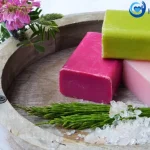As we delve into the question, Is sea moss good for mucus? we uncover a fascinating journey through traditional remedies, scientific studies, and personal anecdotes that highlight the potential connection between this marine superfood and respiratory health.
Whether you’re seeking natural remedies for congestion or simply curious about the powers of sea moss, join us as we navigate through the depths of this intriguing topic to uncover if this oceanic treasure truly holds promise in managing mucus-related issues.
What is Mucus?
Mucus is like a gooey substance made by special cells in our body. It does lots of important jobs to keep us healthy.
Firstly, it helps protect and make things slippery in our body, like inside our nose, throat, stomach, and even down there. This slippery stuff stops bad things like germs or rough stuff from hurting us.
In our nose and throat, mucus catches tiny things like dust or germs when we breathe. Then tiny hairs in our nose and throat called cilia move the mucus along to get rid of those bad things.
In our tummy, mucus protects it from acid and sharp food bits. It also helps food move easily through our body when we eat.
And for girls, mucus helps keep their private parts moist and comfortable. It helps with making babies too.
Mucus is mostly made of water, proteins, and other stuff that makes it sticky. Sometimes if we have too much mucus, it can mean we’re sick and need some help to feel better.
So, mucus might seem yucky, but it’s actually super important for keeping us healthy!
Does sea moss help remove mucus?
Sea moss is a type of seaweed that some people believe can help our bodies get rid of mucus, which is that sticky stuff in our nose and throat when we’re sick.
Even though scientists haven’t studied sea moss a lot for this, some people think it works because it has something called carrageenan, which might help thin out mucus and make it easier to get rid of.
Sea moss also has lots of good stuff like vitamins and minerals that help keep us healthy, like vitamin C and potassium. These things can help make our immune system stronger and keep our breathing tubes healthy.
Some people also think sea moss can help with things like coughs and breathing problems because it has things that fight swelling in our breathing tubes.
But, we need to remember that scientists still need to do more research to know for sure if sea moss really helps with mucus and breathing problems. And if anyone wants to try sea moss, it’s important to talk to a doctor first, especially if they have any health issues or allergies.

Is sea moss good for mucus?
Sea moss is a type of seaweed that some people think can help with breathing problems, especially when there’s too much mucus in our nose and throat.
They believe sea moss has something called carrageenan, which can help thin out mucus. This makes it easier for our body to get rid of it when we cough or blow our nose.
Sea moss also has lots of good things like vitamins and minerals, which help keep our breathing tubes healthy and our immune system strong. Things like vitamin C and potassium are really good for us.
Some people say sea moss can also help with sore throats and coughs because it has things that calm down swelling in our breathing tubes.
But, we need to remember that scientists still need to do more research to be sure sea moss really helps with breathing problems. And if anyone wants to try sea moss, it’s important to talk to a doctor first, especially if they have any health issues or allergies.
How does sea moss get rid of mucus?
Sea moss, also called Irish moss, might help with mucus because it has some special things in it. One of these is called carrageenan, which can help thin out mucus, making it easier for our body to get rid of it when we cough or blow our nose.
Sea moss also has lots of good things like vitamins and minerals that help keep our breathing tubes healthy and our immune system strong. Things like vitamin C and potassium are really good for us.
Some people say sea moss can also help with sore throats and coughs because it has things that calm down swelling in our breathing tubes.
Sea moss also helps to keep our throat and nose moist and slippery, which is good because it helps stop them from getting too dry or sore.
But, we still need more research to be sure sea moss really helps with mucus problems. And it’s important to talk to a doctor first before trying sea moss, especially if someone has any health issues or allergies.
What is the Relationship Between Sea Moss and Mucus Production
Sea moss, also known as Irish moss, might be helpful for mucus because it has something called carrageenan in it. Carrageenan can help make mucus thinner, which makes it easier for our body to get rid of it when we cough or blow our nose.
Sea moss also has lots of good things like vitamins and minerals that help keep our breathing tubes healthy and our immune system strong. These things help our body fight off sickness and keep our breathing tubes working well.
Some people think sea moss can also help with things like coughs and throat irritation because it has stuff in it that can calm down swelling in our breathing tubes.
Sea moss also helps keep our throat and nose moist and slippery, which is good because it helps stop them from getting too dry or sore.
But, we still need to learn more to be sure sea moss really helps with mucus problems. And it’s important to talk to a doctor first before trying sea moss, especially if someone has any health issues or allergies.
Potential Benefits of Sea Moss for Managing Mucus
Sea moss, also known as Irish moss or Chondrus crispus, may offer several potential benefits for managing mucus-related symptoms.
Firstly, sea moss contains mucolytic properties due to its high content of polysaccharides, particularly carrageenan.
These mucolytic substances help break down and thin out mucus, making it easier to expel from the body.
By promoting the liquefaction and clearance of mucus, sea moss may help alleviate symptoms such as congestion, coughing, and throat irritation.
Additionally, sea moss is rich in essential nutrients, including vitamins, minerals, and antioxidants, which support overall respiratory health and immune function.
Nutrients like vitamin C, vitamin A, iodine, potassium, and magnesium play crucial roles in maintaining healthy mucous membranes, promoting proper mucus production, and supporting the body’s natural defense mechanisms against respiratory infections.
These nutrients help strengthen the immune system and reduce inflammation in the respiratory tract, contributing to improved mucus clearance and respiratory function.
Overall, sea moss shows promise as a natural remedy for managing mucus-related symptoms, but more research is needed to fully understand its mechanisms of action and therapeutic potential.
Frequently Asked Questions
Is sea moss effective for managing mucus?
Sea moss may help manage mucus due to its mucolytic properties, which help break down and clear mucus from the body.
How does sea moss benefit mucus production?
Sea moss contains nutrients and polysaccharides that support respiratory health, aiding in mucus production and clearance.
Are there any side effects of using sea moss for mucus?
Side effects are rare, but some people may experience digestive discomfort or allergic reactions. Consult a healthcare professional before use.
Bottom Line
In conclusion, sea moss has been found to have potential benefits for reducing mucus production in the body.
Its high mineral content and anti-inflammatory properties make it a promising natural remedy for respiratory issues.
While more research is needed to fully understand its effects on mucus production, incorporating sea moss into your diet may be worth considering for those dealing with excessive mucus.
Consult with a healthcare professional before starting any new supplement regimen. Take charge of your health by exploring the potential benefits of sea moss today!
Is sea moss good for mucus? Explore the science behind this superfood and its potential to soothe respiratory discomfort effectively.













